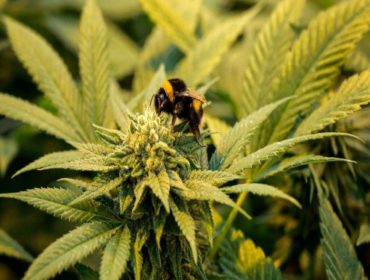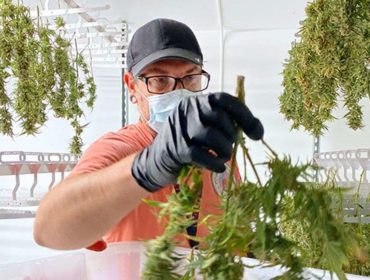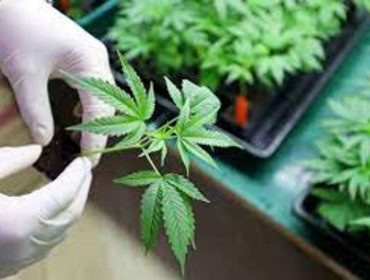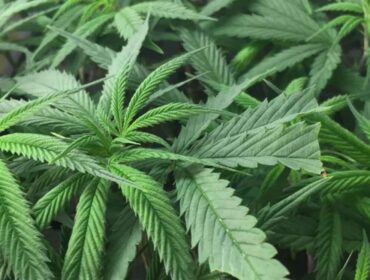The Cannamoms Parenting With Cannabis
An increasing number of mothers are using cannabis to help them parent. As they come out of the ‘green closet’, they’re hoping to shift the stigma.
A couple years after California legalised cannabis for adult use in 2016, Danielle Simone Brand decided to try it. A journalist in the US Pacific Northwest, Brand, now 42, found cannabis left her feeling “better and more embodied, happier in my body and mind”. Looking at legal cannabis as a wellness tool, she quickly liked how using the substance herself bettered her ability to parent her two children, now 8 and 11.
“Cannabis helps me in certain transitional moments,” she says. “I can more easily set aside my workday to-do list, along with whatever challenges and frustrations I’ve experienced that day, and get into the kind of headspace where I can patiently help with homework or make dinner with my daughter.”
Brand, the author of Weed Mom: The Canna-Curious Woman’s Guide to Healthier Relaxation, Happier Parenting, and Chilling TF Out, says cannabis helped her slow down enough to linger with her kids at bedtime. Because she was so often in a hurry to get them to bed at a reasonable hour – and buy some rest for herself – Brand says she was missing out on time when her kids were keen to connect. That meant she failed to hear important details about what they were learning, how they felt about school and their relationships with friends.
Brand says ‘cannamoms’ like her aren’t a new phenomenon – she has seen years of mothers using cannabis to parent. As she wrote her book, specifically “for mainstream moms who didn’t know very much about cannabis”, she found “existing ‘cannamoms’ came out of the woodwork and said they’d needed a book that [identified] this is a movement, and [affirmed] we can be responsible parents and consume cannabis at the same time.”
“There have been very small in-person and online cannamom groups for a long time,” says Brand, “but it’s absolutely growing”.
The rolling enaction of US state-level legalisation, and nationwide legalisation in Canada, has expanded access to cannabis for adults. And although it’s difficult to precisely quantify how many mothers are using cannabis, the expansion of online cannamom communities suggest more mums are embracing cannabis use to help them manage life as a parent.
‘The same way people do wine’
The first time researcher Heather McIlvaine-Newsad became aware of cannamoms was around 2018, due to the emergence of Facebook groups devoted to the new social movement. An anthropology professor and co-founder of Western Illinois University’s interdisciplinary minor in cannabis and culture, McIlvaine-Newsad noted some of the Facebook discussion groups had been running for several years. Today, she says there are more than two dozen such groups on Facebook, boasting several thousands of members.
McIlvaine-Newsad says the cannamom movement demonstrates something that has previously gone unspoken: women – and mothers – are using cannabis in everyday life, including products such as fizzy drinks, edibles, tinctures as well as CBD (cannabidiol) products.
US-based Latrese Thomas, 40, says she combines cannabis and parenting her three children “the same way people do wine”.
“After a long day with the kids – especially during the pandemic, when I was home with all three of my babies, all day – once they were asleep, I was running a bath, dropping some cannabis bath salts in my bath and also vaping cannabis,” says Thomas, who has two teenagers and a toddler. Especially as a black mother, Thomas says amid racially charged social unrest affecting black communities, cannabis helped her “manage my anxiety as a mom – not just as a black woman, but as a mother of black children”.
53-year-old Barinder Rasode also felt her stress ratchet up during the pandemic. With three children, aged 28, 25 and 17, the Vancouver, British Columbia-based mother struggled to parent amid Covid-19, especially while trying to explain to her youngest child what was going on. “You’re dealing with a teenager whose world has got turned upside down, and you’re confined in a small space, all together, for more hours than anybody should,” says Rasode, a former municipal politician turned CEO of medical-cannabis business-incubator GrowTech Labs.
To help calm her frayed nerves, she used cannabis, which is legal in Canada. “My cannabis consumption not only helped ease my own anxiety about the situation, but made me a more patient parent.”
‘The big misconception is we just smoke to get blazing high’
Many cannamoms, including Rasode, Thomas and Brand, all ‘microdose’ cannabis – using the plant or its extracts in small doses.
“The big misconception is we just smoke to get blazing high,” laughs Thomas, who owns Releaf Health cannabis dispensary in Portland, Oregon, US, and runs the blog Living Unapologetically with Trese. “Well, no. I am still a mom. I still have to function. I still run a business. I still have to do pick-ups and drop-offs and attend practices.”
My cannabis consumption not only helped ease my own anxiety about the situation, but made me a more patient parent – Barinder Rasode
Brand agrees. “If I’m parenting, I only want a small enough dose where it shifts my perspective a little bit. All the thoughts, to-do lists and all the mom-brain stuff slows down enough that I can be more present, more patient more creative with my kids.” She believes microdosing is “low risk”.
Research is still inconclusive around the benefits and risks of microdosing, or around cannabis use writ large. A 2017 review by the National Academy of Sciences concluded there is limited evidence to suggest that cannabis can cause the sort of long-term health effects associated with other substances. Another detailed review of research on cannabis-related harm published in 2018 highlights some potential risks around both mental and physical health, as identified in several studies – though again, not all evidence was conclusive, and additional work needs to be done. Altogether, this does underscore the need for further detailed research, as in many cases there is too little data to draw firm conclusions.
Currently, according to research, the clearest risk around cannabis use appears be injuries and accidents that can occur due to people using cannabis. Much like any intoxicating substance, it can affect judgement and reaction times, and has been shown to increase the risk of being in a motor accident, for instance.
Such complex and inconclusive information means that even with microdosing – as with any other psychoactive substance – there will be caveats. Adults who have not previously consumed cannabis may not handle the substance comfortably, particularly if they inadvertently consume more than they intended. And, as the market drives demand for more potent products that can easily exceed individual tolerance, the risk of a negative, sometimes frightening “green out” can increase for all users.
‘Mommy needs to microdose’
Stigma stalks every discussion about cannabis use, and it is especially acute for mothers who admit using cannabis.
Though Brand says she hasn’t experienced stigma herself, she has seen it in action. “Other cannamoms I know on social media have received comments like, ‘you’re a bad mom’, ‘you’re setting a bad example for your kids’, ‘you’re glorifying drug use’, ‘it’s pathetic that you have to be high to parent’ and even ‘your kids should be taken from you’,” she says. “There are also cannamoms out there whose kids have missed out on real-life playdates and friendships because of other kids’ parents’ stigmas against cannabis.”
For Thomas, as a suburban mom – and a black woman, particularly – she’s careful about whom she tells about her cannabis use, even as she feels judgment is unfair and hypocritical. “You have wine-drinking moms, meeting up for ladies’ night at the bar or playdates at their house and there’s alcohol available while kids are around. If I were to be like, ‘Let’s have a smoke sesh’… everyone would be like, ‘There’s kids in the house!’” she says.
McIlvaine-Newsad adds, “It is socially acceptable for a mom to say ‘Mommy needs a glass of wine’, but still not socially acceptable to say ‘Mommy needs to microdose’.”
Cannamoms I know on social media have received comments like, ‘you’re a bad mom’, ‘you’re setting a bad example for your kids’, ‘you’re glorifying drug use’ – Danielle Brand
Although she notes we don’t yet know the long-term effects of cannabis on women’s health, McIlvaine-Newsad also believes the persistent focus on negative effects of cannabis is a political holdover from cannabis prohibition, rather than the product of legitimate medical concerns. “As long as society at large and politicians in general continue to hold the belief that cannabis is bad, then those are the kinds of questions that science will ask,” she stresses. “Not ones like, ‘Can cannabis be used to effectively manage postpartum depression?’”
Different communities have different levels of stigma around parents using cannabis, even in countries and states in which cannabis is legalised. McIlvaine-Newsad says the social acceptability of mothers using cannabis depends on where a mum is located – whether in a specific US state, the country writ large or in the world. The legality of cannabis plays an obvious role in its social acceptability, though even in places where it is legal, McIlvaine-Newsad stresses “it depends on your socioeconomic status, on the educational status of the community that you live in, and the political status”.
‘Lots more women are coming out of the green closet’
In countries in which cannabis is now legal, a combination of research and legalisation has somewhat helped shift societal perceptions of cannabis – especially from where it was decades ago, when it was erroneously believed to be as dangerous as illicit drugs including cocaine and heroin, while offering no medical or societal benefit.
But, again, we still don’t have a full picture of the risks of cannabinoids and recreational cannabis use – microdosing or otherwise. As a result, for many, cannabis use still stays counterculture, rather than mainstream. Regardless, as McIlvaine-Newsad says, parents are continuing to use cannabis. As an increasing number of US states and countries across the globe make some steps toward adult cannabis legalisation – however slowly – the cannamom movement seems poised to grow.
McIlvaine-Newsad says generational attitudes are beginning to shift across the board – some of her students even report their grandparents using cannabis. She believes this generational easing has occurred at precisely the right time to serve the burgeoning cannamom movement. She also believes younger generations are less judgemental, so, since the “cannamom demographic is slightly younger”, McIlvaine-Newsad believes the “fluid” views of millennials and Gen Zers will help shake off some stigma.
“Lots and lots more women are coming out of the green closet,” agrees Brand.
Thomas believes her sceptical neighbours should get used to the fact that many people around them are already consuming cannabis, across all demographics – something she’s seen first-hand as the owner of a dispensary.
“People would be shocked by the diversity in ages, the diversity in race and the diversity in occupation,” she says. “There are quite a few stay-at-home moms who are consumers, and that’s more than OK. I pray that we get to a place very soon where we can have canna-mom nights – let the older kids watch the younger kids and we can just relax and have a good time.”
Source: https://www.bbc.com/worklife/article/20211116-the-cannamoms-parenting-with-cannabis












